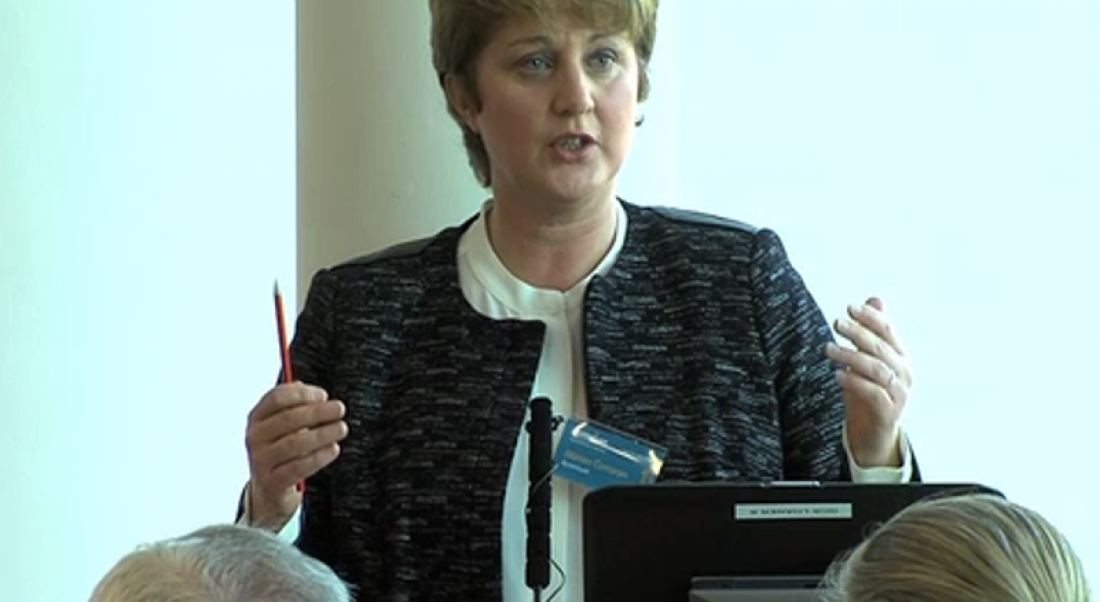Parents and teachers’ promotion of traditional career paths for girls – such as teaching and nursing – is a decisive factor influencing girls’ subject and career choices and one of the reasons why only 25pc of science and tech workers in Ireland are women.
A major study by Accenture involving 1,000 female secondary school students, and young women aged 18-23, was unveiled this morning in Dublin.
The study was compiled by Accenture as part of Silicon Republic’s Women Invent Tomorrow campaign, with the support of Intel, ESB, the Irish Research Council and CoderDojo.
The study found that 44pc of the students cited “the perception that STEM subjects are more suited to males than females” as one reason for the low participation of women in the science and tech industries.
One in four teachers said they believe that promotion of traditional “girl career paths”, such as nursing and teaching, contribute to the stereotype.
Video 1
Women Invent Tomorrow – Attracting more women into STEM careers (Part 1)
Some 77pc of teachers believe girls choose biology in school because it is more aligned with what they see as girl career paths. Ninety-two per cent of teachers believe biology is easier than chemistry or physics.
The study found that 26pc of all students that took the physics higher-level paper in 2013 were female, a 3pc drop on the previous year.
The head of Accenture Strategy in Ireland Marian Corcoran pointed out that in terms of career trends identified by teachers, only 1pc of girls are interested in careers in burgeoning fields like app development – critical to the success of apps like Hailo, Snapchat, Viber and Instagram – whereas 97pc of boys expressed an interest in the area.
Video 2
Women Invent Tomorrow – Attracting more women into STEM careers (Part 2)
Only 1pc of girls also expressed an interest in electrical engineering – critical to developments such as circuitry inside smartphones and the running of mobile and broadband networks – and only 10pc said they were interested in computer programming.
This compared with 93pc of girls interested in childcare/social work, 95pc of girls interested in beautician and hairdressing careers, 89pc interested in nursing, and 48pc interested in teaching.
Corcoran said this trend is somewhat tragic if you consider that in Ireland there are likely to be 44,000 job openings in the ICT sector in the next five years and that if current trends continue, only 25pc of these roles will be filled by women.
The survey revealed parents as the key influencers of students’ Leaving Cert choices (49pc), followed by other young women (48pc) and teachers (31pc).
This is alarming when you consider 68pc of parents feel poorly informed on career opportunities and industry needs relating to STEM (science, technology, engineering and maths) skills.
Another issue the survey highlighted is that parents believe in a clearly mapped out career path for their daughter – such as in being a teacher, a lawyer, accountant or doctor – which is at odds with the more portfolio-based structure found in STEM careers.
The survey also found that 55pc of teachers believe information available to students on STEM-related careers is either average, poor or very poor.
Corcoran called on united approach by the IT industry, educators and parents to ensure that not only are young women better informed about the choices they can make in subjects and careers, but that more role models exist for them to envision working in the dynamic science and technology industries.
Click here to download full report (PDF)
Women Invent Tomorrow is Silicon Republic’s year-long campaign to champion the role of women in science, technology, engineering and maths




